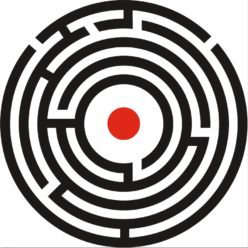I am traveling to Oaxaca, Mexico, with Oliver Sacks.
I’ve been looking forward to it with considerable anticipation, something that would not, normally, be my reaction. I am quite shy and I can think of few things more to be dreaded that that time spent in the close company of strangers. I like my privacy. I am happy by myself. I find books fine companions at dinner. Strangers can be intrusive. They look at one. They may wish to converse. They may very well have irksome habits. But I am untroubled by my journey with Sacks: he’s been dead for eight years.
Our interaction has been, and will continue to be, only through the medium of his writing and my imagination.
I’ve known of Oliver Sacks for years, but it is only in the past two years that I feel I’ve gotten to know him as a person. I first came to know him – as many others have – through his accessible and provocative case histories of patients encountered in the course of his neurology practice. The Man Who Mistook his Wife for a Hat, Awakenings, and Musicophilia are just a few of the publications which made him famous, even as they revived a 19th Century tradition of publishing medical case histories. However, in the last two years, I’ve discovered that he had a broader repertoire than I knew. He’s written essays on a variety of topics including, as his life entered its twilight period, essays about his life, and ultimately a memoir, On the Move. It was through thislatter tranche of writings that I learned of his crippling shyness, not something I would expected of such a sprightly writer, his largely closeted life as a gay man, his time as a meth addict, as well as a variety of odd and, to me, endearing characteristics, such as his obsession with the periodic table of the elements, or his fascination with the botany of club mosses and other primitive plants.
It was his last book – Gratitude – that spoke to me, and made me want to know him better. Gratitude is a short book of four essays, three written during the period when he knew that his remaining life was measured in months and weeks; the fourth written a year or so prior to that. I read the book during the time of Covid, when my retirement activities had been muted by the pandemic, and various events such as the passing of parents, the deaths of friends, and shifts in my own health had shifted my awareness of mortality from the purely intellectual to the deeply emotional. Gratitude is an apt title for the book, as that theme wends it way through the essays, regardless of topic. But what attracted me even more were other emotions entwined with gratitude: curiosity, engagement and a quiet sort of joy.
<quotes>
Views: 6
